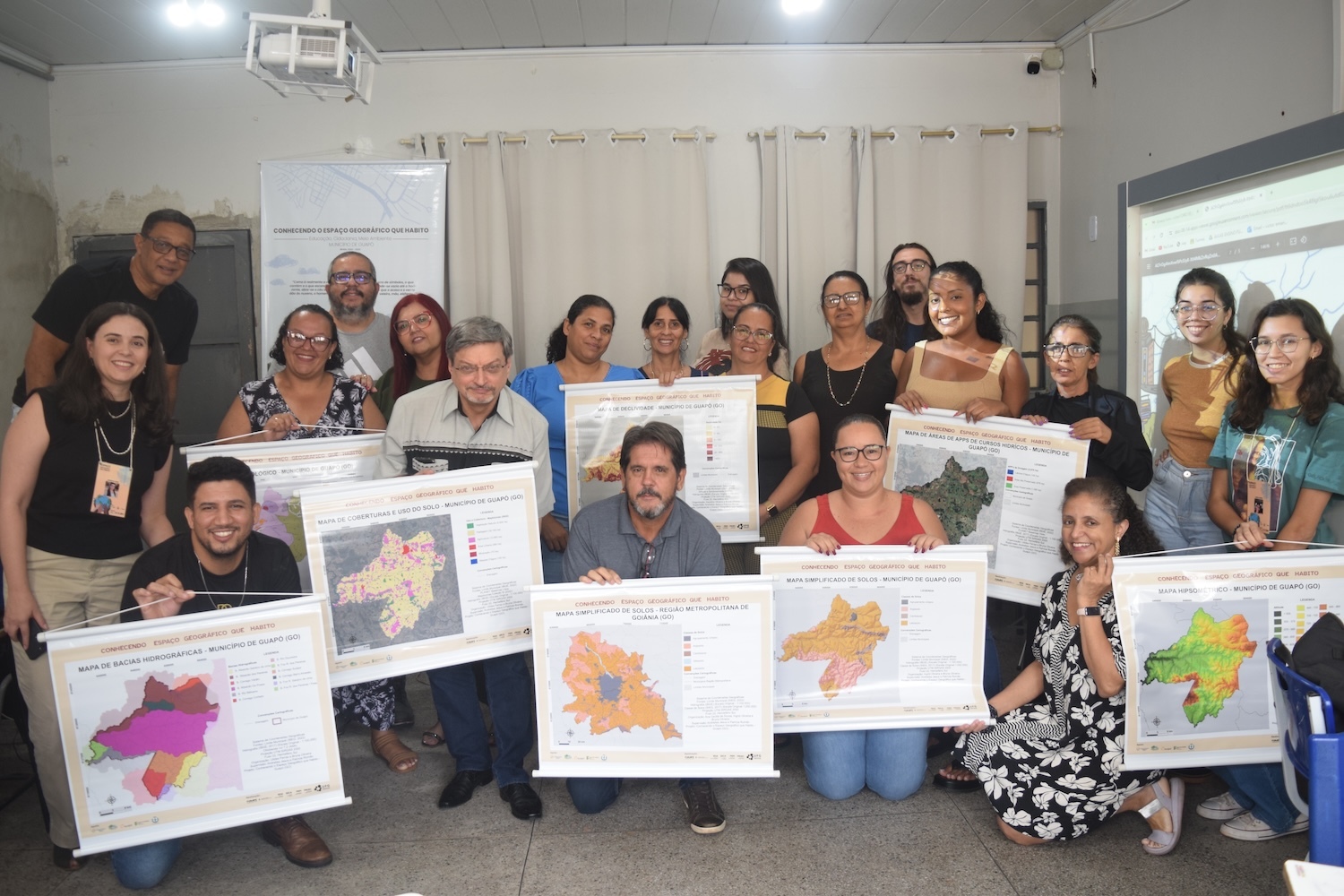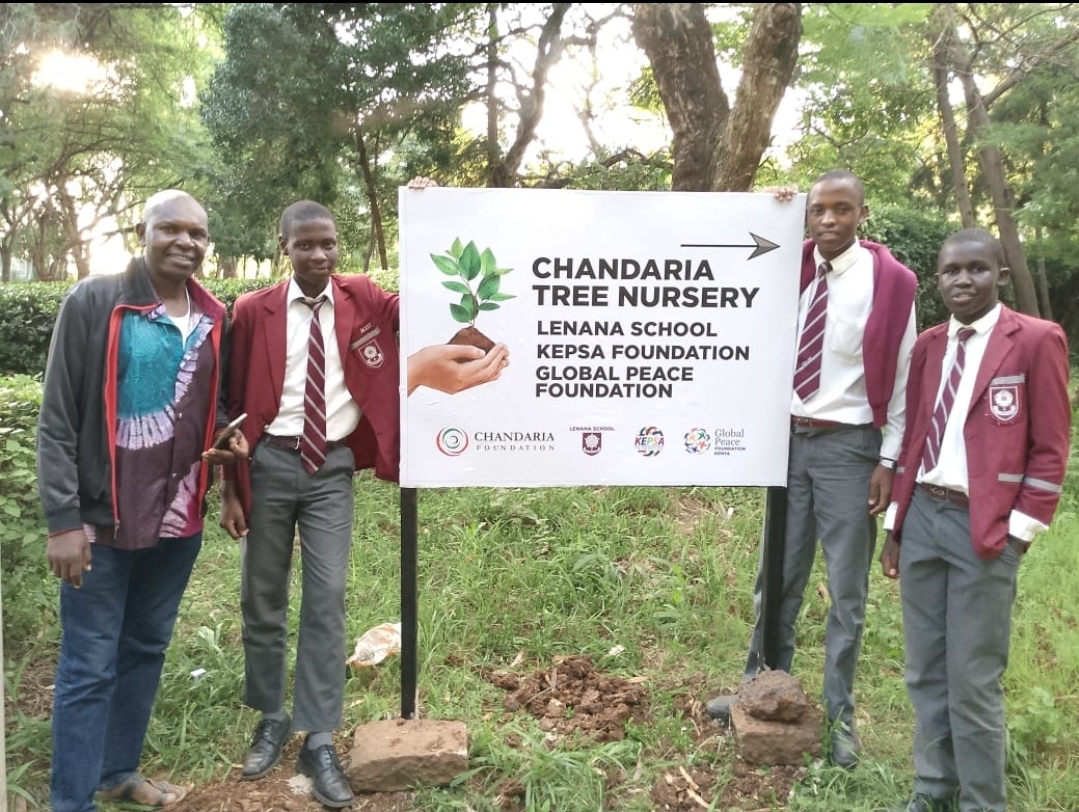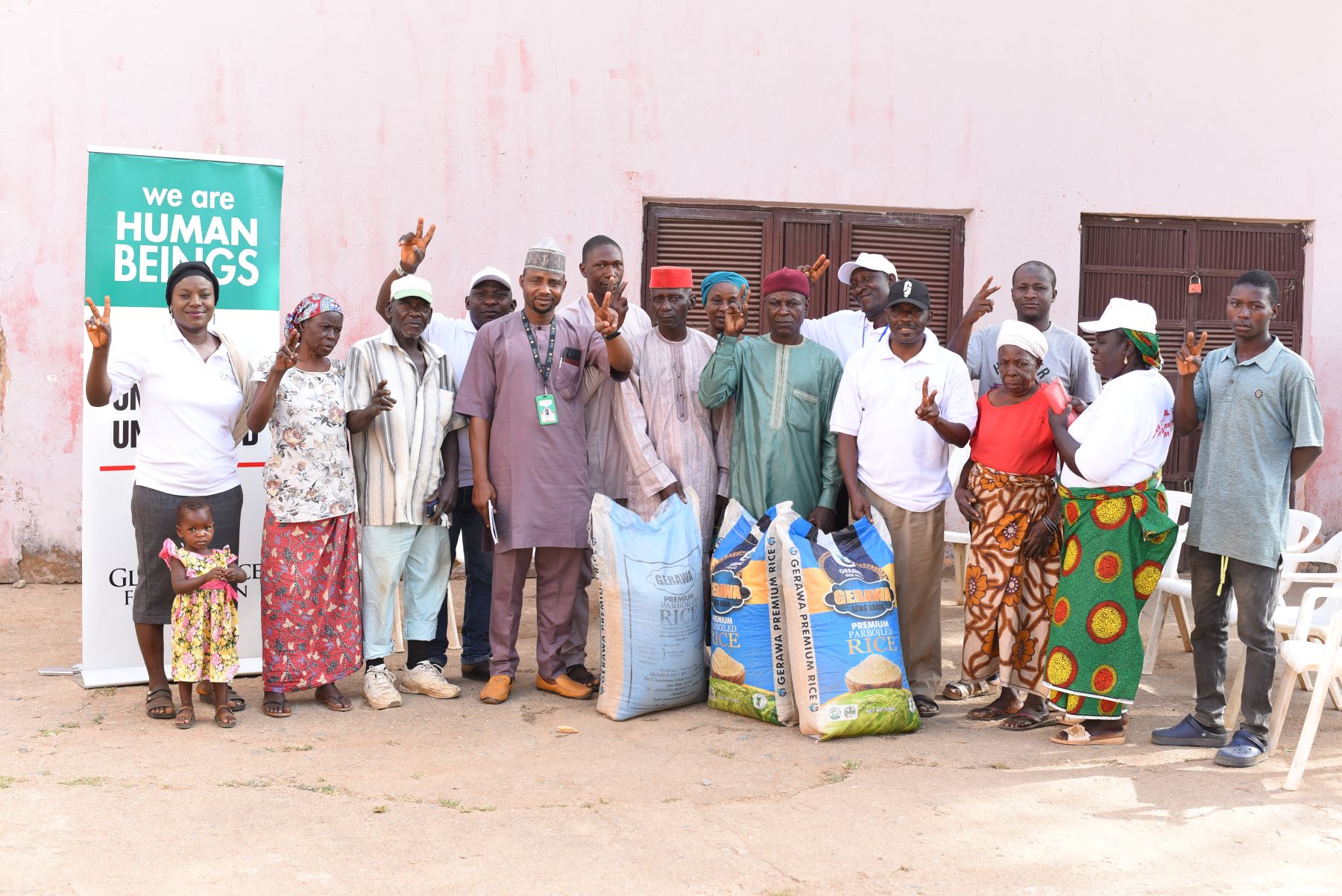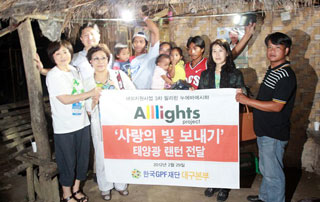
GPLE Korean delegates with an All Lights Project family recipient in Sitio Karugang, Gabaldon, Nueva Ecija.
“There are 30,000 sitios* nationwide without electricity,” said Philippine President Benigno Aquino III in a January 21, 2012 speech at the launch of the government’s “Project Heart & Soul” electrification plan in Manila. “This big number of Filipinos in darkness is a great impediment to our nation’s economic growth and educational progress.”
In an effort to address this development challenge, the Global Peace Festival Foundation has launched the Philippine-Korea Global Peace Leadership Exchange (GPLE) AllLights Project, a model program to distribute solar lanterns to remote communities with limited energy access.
Many sitios rely on kerosene lanterns for their lighting needs. Yet the problems in using kerosene lanterns are well-documented: fire hazard, high cost of kerosene, inadequate light, and respiratory illness for women and children due to indoor air pollution.
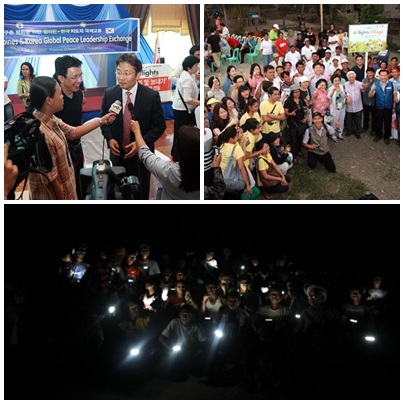
Top left: UNTV Station interviews GPFF Korea President Dr. David Yoo on the AllLights Project; top right and below: Korean GPLE participants with villagers in Nueva Ecija.
The AllLights project aims to replace kerosene lamps with safer, less expensive, and more environmentally friendly solar lanterns, providing nighttime illumination so children can study their lessons and other family members can do household chores.
In 2011, GPLE distributed solar lanterns to some 220 families in Milbuk, Palimbang, Sultan Kudarat, and Maitum, Sarangani. Then from February 27 to March 1, 2012, GPLE volunteers from Korea crossed rivers and climbed mountains to directly present solar lamps and other gifts to their “exchange families” in project sites in Palayan City and the municipalities of Laur and Gabaldon. Through experiencing the living conditions of their exchange families, they were able to build closer bonds and greater cross-cultural understanding.
The Global Peace Leadership Exchange program also includes a brotherhood and sisterhood ceremony which links a local leader with a Korean exchange partner. During the ceremony, each signs a certificate upholding the vision of “One Family under God,” and it concludes with a presentation of the solar lamps to Barangay Captains.
All Lights Village project
With the support of the provincial government under the leadership of Governor Aurelio M. Umali, GPFF Korea and GPFF Philippines sealed a partnership to launch the “All Lights Village” project in Nueva Ecija. Nueva Ecija is only 3hours away from Manila, the capital of the Philippines, but it is one of the poorest regions due to the rugged mountains, hot and humid climate, and emergence of antigovernment guerrillas.

To reach the area, Korean participants of the Global Peace Leadership Exchange travelled unpaved roads under the protection of armed soldiers dispatched from Nueva Ecija.
When participants arrived in a village near Karu River, residents gave them a warm welcome. After delivering 63 solar lanterns to the community, one of the villagers said with a joy, “It’s easy to use and now I can live with light during nighttime.”
During the night Koreans guests and villagers used solar lanterns to brighten darkness. One Korean, Kill Sun-ok, said, “Through All Light Village I had a chance to meet people in person and I realized that what we are doing is so precious. I hope people in the world who are living in darkness without a light could one day get this benefit.”
With a commitment to balanced development through harmony among religious affiliations, family values, and service for peace through friendship and cooperation, All Lights Village will connect GPLE with local communities not only as beneficiary of solar lamps but other longer-term exchanges and development projects, including a student exchange in Nueva Ecija for its next program.
*A sitio is a territorial enclave that forms part of a barangay, the smallest administrative division in the Philippines [Ed].

